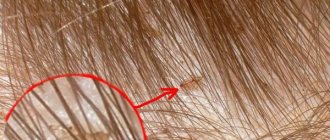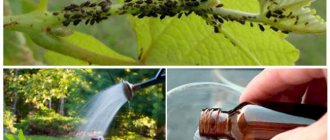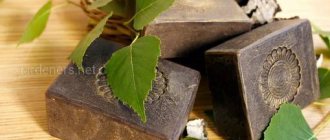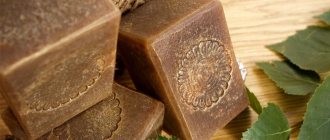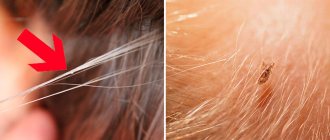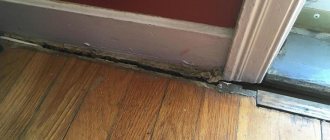Ammonia for aphids is one of the most famous and favorite remedies among farmers. Also, ammonia or ammonia is suitable as a mineral fertilizer that saturates the soil with nitrogen. And in the fight against such a pest as aphids, this is an excellent folk remedy, since for all its fertility and vitality, aphids are highly sensitive to ammonia fumes, and also when the pest gets inside, paralysis of the respiratory tract occurs and, directly, the death of the insect. It should be noted that this solution is harmless to humans.
Unlike chemical preparations for aphids, ammonia is used at any stage of plant development. But still, it is recommended to treat plants in early summer. Ammonia can be used to treat tomatoes, cucumbers, peppers, cabbage, fruit trees, raspberries, currants, viburnum, roses, indoor plants and many other crops.
Ammonia for aphids: pros and cons of using ammonia
Many farmers and gardeners use ammonia for aphids due to the following benefits:
- A sharp, pungent odor that many pests, including aphids, cannot tolerate.
- The proven effectiveness of ammonia with regular use (to combat aphids you only need 2 spraying procedures, with an interval of 14 days).
- Low cost of the product.
- Suitable as a nitrogen fertilizer.
- Safe product.
But there are also negative aspects of treating aphids with ammonia. These include:
- Inhaling ammonia vapor can make a person feel worse.
- During use, you must wear a mask or respirator.
- Excess nitrogen can lead to disruption of natural processes in plant tissues, so leaves may turn yellow.
- A short period of plant protection while the ammonia smell persists.
Why does ammonia help fight aphids?
In agriculture, ammonia is used as a fertilizer - it saturates the soil with nitrogen. Ammonia also helps in the fight against aphids due to its irritating effect: firstly, insects cannot stand its pungent smell, and secondly, if ingested, ammonia causes intoxication, paralysis and inevitable death of pests. Aphid repellents based on ammonia have a double effect: they get rid of aphids and act as a foliar nitrogen fertilizer for the leaves.
Unlike insecticides, ammonia can be used at any stage of development: during flowering, ovary, fruiting. It does not accumulate in the leaves, is quickly excreted and helps plants produce a good harvest. However, it is preferable to treat plants with ammonia in the first half of summer, when plants need nitrogen. In the second half of summer, nitrogen fertilizing is contraindicated, as it causes rapid growth, the plants do not have time to become lignified and may freeze in the winter. In addition, spraying in the first half of summer is much more timely, since aphids actively eat young leaves and shoots.
Recipes for preparing a solution of ammonia for aphids
In order not to harm fruit crops, ammonia for aphids is used in the form of a solution, with the addition of other products, such as laundry soap, liquid soap, dishwashing detergent or shampoo.
Consider recipes for preparing a solution of ammonia for aphids:
- Soap-alcohol solution. Ammonia (50 g) is dissolved in 10 liters of water, 50 g of laundry soap shavings are added and mixed thoroughly. Soap is added for better adhesion of the solution to the leaves. Use immediately after preparing the solution.
- Solution with washing powder. Dissolve 1 tbsp in an incomplete bucket of water. l. powder and 2 tbsp. l. ammonia.
- With the addition of shampoo. Dissolve 1 tsp in a bucket of water. shampoo and 2 tbsp. l. ammonia.
You need to use a solution of ammonia for aphids immediately after preparation, as the smell goes away quickly, and the remaining solution can be poured under the root of the plant as a nitrogen fertilizer. It is important to know that in order to completely get rid of aphids, you should carry out 4-5 treatments of plants over a decade, and after treatment procedures, it is better not to water the garden for several days, so as not to wash off the spray from the leaves.
How to spot aphids on plants
Aphids are a malicious pest of summer cottages, orchards, and vegetable gardens. Moreover, the aphid is incredibly prolific: it can produce 50 generations per season. This parasite prefers to settle on young tender shoots to suck the juice from them. The pest is also dangerous because it releases so much poison that the leaves begin to curl and the branches begin to bend. Aphids can also carry viral diseases, which are very dangerous for all garden plantings.
Carefully examine the leaves and shoots of currants, plums, pears, and fruit bushes.
There are many types of aphids: black, red, white. The gall aphid is considered the most dangerous and prolific. If you notice any type of this parasite in your garden, begin to wage a merciless fight against it.
Gall aphids prefer all types of currants. If currant leaves are affected by brown spots, then insect colonies have already settled on the reverse side of the leaf.
The most common is the green aphid. It is capable of attacking all types of fruit trees and does not miss bushes. Chrysanthemums and roses are also her area of attack.
Ammonia for aphids: application
Ammonia against aphids: video
Before treating aphids from the garden with ammonia, you should get rid of all anthills (to do this, you can water the anthills with muracide solution twice over the summer), remove dry branches and burn obvious areas of damage. To combat aphids with ammonia, use a watering can with a wide nozzle, since when using a spray bottle, sprayed drops of ammonia may not reach the leaves. The solution is used not only for aphid-infested plants, but also for healthy crops.
When processing, special attention is paid to the underside of the leaf, because this is where aphids hide. You need to spray on a cloudy day or in the evening. All plants can be sprayed with ammonia on grapes every 10-12 days. If the infection is small, the plants are treated every 2 weeks, and for prevention, you can get by with one procedure per month using a weak solution (10 ml of alcohol per 10 liters of water). To treat large orchards, you need to start spraying with an ammonia solution without waiting for the invasion of pests.
How to properly treat plants against aphids with ammonia
Ammonia is incredibly volatile, so when sprayed from a garden sprayer, the substance has time to deactivate before it hits the foliage. In addition, using a watering can allows you to apply the composition more abundantly to all parts of the plants, including the lower part of the leaf blades. But this is where aphids usually hide.
The treatment is carried out on a calm, cloudy day, preferably in the evening or early morning. If it rains the next day, the treatment is repeated.
Before this, I advise you to examine the “patients” and cut out all severely damaged, completely withered shoots and leaves.
Ammonia vapors, when inhaled, often cause weakness, nausea, dizziness, and even a burn to the trachea. Before starting work, open areas of the body, mouth and eyes are covered with clothing, a respirator and goggles.
Don’t forget to also thoroughly spray neighboring plantings, even if the pest is not yet visible to the naked eye.
It is also beneficial to use ammonia to prevent infection of garden and vegetable crops. To do this, plantings are watered after the leaves bloom three times every 10 days. First, the area is cleared of any plant debris - leaves, branches, tops.
Should know
To use ammonia against aphids, you need to follow safety precautions:
- Due to the pungent odor, it is necessary to use a mask or respirator when working with ammonia (inhalation of ammonia fumes is dangerous for the nasal mucosa).
- To prevent the composition from getting on your skin and eyes, you need to spray wearing rubber gloves, closed-type clothing and safety glasses.
Numerous reviews from gardeners indicate the effectiveness of using such a solution of ammonia against aphids. Ammonia or ammonia is the most common remedy against aphids among gardeners and gardeners, but for greater effectiveness, additional measures and means of pest control should be taken. You can use ash. Ammonia is safe for plants and the environment, does not harm water bodies, birds and beneficial insects, and does not accumulate like nitrate in fruits. Be sure to add soap to solutions with ammonia to give them sticky properties.
Advantages of use
You can find a large number of varieties of aphids on your property or in your garden. This small winged insect is approximately 4 cm in length. They are very prolific and, if you do not fight them, the garden or vegetable garden will be completely infected after some time.
Ammonia is one of the effective folk remedies in the fight against aphids, since this insect is highly sensitive to ammonia evaporation. If this substance gets inside, it will lead to the inevitable death of the insect.
The main advantages of using ammonia are:
- the pungent odor of the product, which many types of aphids cannot tolerate;
- the substance is natural and safe;
- It has an effect on the parasite immediately upon first treatment.
Aphids cause a lot of inconvenience when they appear on the site or in the garden. Plants under its influence begin to develop various diseases and die. The number of pests is growing exponentially, and even ladybugs and birds are not able to regulate the number when a site is massively infested.
Minuses
Ammonia, used against aphids, has its drawbacks when spraying plants. The main ones are:
- a person may suffer from inhalation of ammonia vapor;
- an excess of nitrogen leads to yellowing and dying of leaves;
- the period of plant protection is short - while the smell of ammonia is present;
- During processing you need to wear a respirator and gloves.
Preventive measures against aphids on roses
To prevent aphids from attacking roses, it is worth carrying out systematic and timely prevention.
It includes:
- timely harvesting of dry leaves and stems;
- frequent ventilation of the room if flowers grow in it;
- providing enough light to the flower;
- regular application of fertilizers;
- preventing the appearance of ants;
- a thorough inspection of all purchased pots, plants, soil;
- Replant only in fresh, new soil.
Growing the rose family involves constantly washing the upper part of the plant and timely moistening the soil, as well as spraying the above-ground part. It is necessary to maintain the optimal temperature regime.
Care errors that lead to aphids on roses
The insect is very prolific, so it must be destroyed at the larval stage.
If roses grow even indoors, then it is quite possible for them to be affected by aphids.
There are several ways for aphids to enter the house:
- flies in through an open window or window;
- using shoes or clothing;
- when the flower is on an unglazed balcony;
- through the flowers brought;
- through soil that is already contaminated.
What is also important here is how favorable the conditions are for its reproduction.
Proper care can prevent it from spreading further.
The result of treatment against aphids on roses - video
Caring for roses to prevent aphid damage consists of the following procedures:
- Maintaining hygiene: systematic pruning and showering. Those roses that are in well-groomed condition are better able to resist insects. Particular attention should be paid to care in the summer, as warm conditions are most favorable for increasing the number of aphids on roses.
- Excess nitrogen.
When feeding is too excessive, the tissue structure of the flower is not so dense. And this, in turn, makes the plant more juicy, which is attractive to these insects. - Quarantine.
If we are talking about indoor roses, then each new plant should be kept separately from other flowers. It’s even better to increase the time to a couple of weeks. This will prevent the pest from spreading to other indoor plants.
It is imperative to carry out a systematic inspection of all flowers, as well as timely prevention.
Aphids on roses: reviews on control and prevention
Angelina, 38 years old, Rostov region I grow roses at home. In my opinion, much has been exaggerated about the whimsical nature of roses; I speak from my own experience. The word “capriciousness” is attached to this flower. However, among my other flowering plants, roses are one of the easiest to care for. The only thing you have to fight is aphids. It is unclear where it comes from. I immediately spray with soapy water. I take 30 grams of crushed laundry soap per liter of water. I spray every other day until the insects disappear completely. A very effective, safe and inexpensive recipe.
Anna Pavlovna, Vologda Roses in my garden are my pride. I spare no time or effort in caring for them. As an experienced gardener, I place greater emphasis on prevention, without waiting for uninvited guests, that is, aphids. The first thing I did was to plant plants nearby that repel aphids: peppermint, marigolds. Nearby I made a bed of herbs: parsley, dill, fennel. As a preventive measure, at the very beginning of spring, when roses begin to wake up after hibernation, I spray them with a solution of soda in the amount of 30 grams of the substance per 1 liter of water. Overall, this is enough. Of course, I systematically carry out all the necessary care procedures: pruning, watering, loosening, fertilizing. My roses are in excellent condition and the garden is fragrant!
Andrey Vladimirovich, Lyubertsy My wife and I really love roses. The initiative to plant at the dacha was mine. That is, I am sort of the main florist in our family. I also have the final say on care. I am for preventive measures to eliminate aphids. But it’s not always possible to do everything exactly, something was overlooked somewhere and that’s it, here it is, right there. I opted for chemicals. I’ll explain why: everything is simple here, in my opinion, I processed it once and there is no need to doubt it and run around 10 times a day and see if it worked or not. The second treatment eliminates insects for sure. I alternate medications. The choice was made on Fitoverm, Fufanon (complex) and Iskra-Bio. By the way, the last drug is made exclusively from natural substances. Often one treatment is enough and the aphids disappear. The roses are healthy and strong. Chemistry does not affect them negatively in any way. I recommend it if you choose something from chemical products.
Recently searched:
Signs of aphid damage to roses
The first sign of aphid infestation is the presence of yellow spots on roses, localized at the sites of the parasite bite.
Aphids on roses - video
Further, the following symptoms can be used to detect aphids on roses:
- a coating of sticky consistency appears on the surface of the rose leaf plate, and the shoots themselves no longer shine as in a healthy state, dust and dirt accumulate;
- shoots grow more slowly, their shape is disrupted;
- rose buds droop and do not bloom, shedding occurs.
It is impossible not to notice the defeat of aphids. However, the sooner it is detected, the better.
Pests in the garden!
How to get rid of wireworms Effective ways to deal with mole crickets
Mechanical method of eliminating aphids
To eliminate aphids, you can simply wash them off with a stream of water. This makes sense when the parasite is detected almost immediately and when its quantity is small. You can remove insects by hand by walking along the stems in the direction in which the flower grows.
The process is carried out very carefully and carefully to preserve the buds and branches intact and undamaged.
Photo of the mechanical method of eliminating aphids
Methods for controlling black aphids
Methods for getting rid of parasites can be divided into two subtypes: preventive, when young shoots are treated with special solutions that repel aphids, and direct disinfestation, aimed at ridding the bush of the insect population.
Mechanical washing or manual removal of insects is a very ineffective method. If the plant is weakened, then such treatment will only do harm.
The first thing to do is cut out everything growing near the root. This is where aphids lay their eggs. It is also necessary to remove the old bark and wash away any hidden insects. Now you can start disinfestation.
Recommendations for using natural aphid repellents
There are a lot of effective methods of combating aphids. The main rule for using any means, both chemical and natural, is to use them wisely. There are several nuances to using natural pest repellents:
- Few traditional methods give instant results. You will have to carry out from three to ten procedures with a frequency of 1-2 times a week. Recipes must be alternated.
- The treatment is carried out only in the evening and special attention is paid to the lower surface of the leaf plates. At the very beginning of the growing season, it is better to use chemicals, and at a later date, before and after harvesting, use softer and harmless natural products.
- Folk remedies are appropriate only on small personal plots. They are not used in agricultural production conditions.
If after using your own preparations the insects do not disappear or the situation worsens, then it is better not to delay and use insecticides. On store shelves you can find biological products that have a milder effect and do not harm fruit and vegetable crops, but cause great damage to aphids and other harmful insects.
If after one treatment the aphids have not disappeared from the leaves, the procedure should be repeated at least one more time.
When using traditional methods, you can get rid of not only pests, but also various fungi and rot. They have an antiseptic effect and at the same time serve as additional nutrition. But you need to use such drugs with caution, wear a mask and gloves, and wash your hands and equipment thoroughly after handling. To prevent aphids from returning, it is necessary to simultaneously treat all adjacent areas.
Author of the article: Kamenkov Igor Dmitrievich
- Related Posts
- Garlic against aphids - a proven remedy against small garden pests
- Honeysuckle: propagation, planting and care, features of growing in the country
- Valerian will help against cabbage pests: tested by myself
« Previous entry
What is an aphid?
Aphids are small pests with a pear-shaped body.
Appears in large quantities at the ends of pink stems in late spring - early summer.
It is difficult to immediately detect on the green parts of the plant because it blends in with them. Aphids tend to quickly increase in number: literally overnight they can grow rapidly.
Photo of the appearance of aphids
Aphids are smart insects. It knows how to hide and camouflage itself, and therefore it is not easy to detect it at the very beginning.
When it lands on roses, the leaves of the plant curl and hide the insect inside. Thus, aphids are protected from treating the plant with folk or chemical means.
Beautiful varieties of roses!
Hybrid tea rose Red Intuition Rose floribunda Freesia Rose floribunda climbing Rumba
The insect especially prefers young shoots, twigs, leaves, sprouts, and therefore they especially require protection. Shoots affected by aphids begin to dry, wither, and become covered with rust.
There is a pest with a green, slightly oblong body and brown antennae. There are mealy aphids with a white coating on the body. It affects roses growing in greenhouses. There is an indoor one with a transparent body and a size of no more than 1 mm. It is the most difficult to detect.
What are aphids and how to fight them - video
Life cycle of black aphid
In order to get rid of parasitic insects, you need to know the peculiarities of their wintering and reproduction. Then the control measures taken will be as effective as possible.
Aphids are extremely prolific. Females lay eggs on the bark near the buds, several hundred thousand at a time, and all newly hatched individuals are ready to reproduce. Until August they feed and grow, closer to autumn they begin to move in search of new food sources, and towards the end of September they lay eggs. In early spring, these eggs hatch into larvae that feed on leaf sap.
Since young aphids do not have wings, they cannot move long distances on their own, and black ants become their carriers. If you find an anthill near the bushes, destroy it immediately: pour boiling water on it or sprinkle with slaked lime.
It is important to get rid of black aphids immediately after detecting individuals on the stems or bark of viburnum. It is best to treat the bushes in early spring - it will be much more difficult to destroy thousands of bugs that will have time to appear in a few months and will be able to migrate to other trees.

